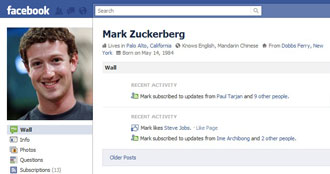 Bad news for readers of ebooks, a team of boffins have worked out that if you read information on a tablet you are less likely to take it in.
Bad news for readers of ebooks, a team of boffins have worked out that if you read information on a tablet you are less likely to take it in.
A new study which found that readers using a Kindle were “significantly” worse than paperback readers at recalling when events occurred in a mystery story.
The study gave 50 readers the same short story by Elizabeth George to read. Half read the 28-page story on a Kindle, and half in a paperback, with readers then tested on aspects of the story including objects, characters and settings.
Anne Mangen of Norway’s Stavanger University, a lead researcher on the study, was looking for differences in the immersion facilitated by the device, and in emotional responses.
What she found was that Kindle readers performed significantly worse they were asked to place 14 events in the correct order.
The researchers think that “the haptic and tactile feedback of a Kindle does not provide the same support for mental reconstruction of a story as a print pocket book does”.
Mangen said that When you read a paper book, it is possible to make sense of the flow of the book because your fingers feel a pile of pages on the left growing, and shrinking on the right. This gives the reader a tactile sense of progress.
A similar test in Norway gave kids texts to read in print, or in PDF on a computer screen, followed by comprehension tests. She and her fellow researchers found that “students who read texts in print scored significantly better on the reading comprehension test than students who read the texts digitally.”
What is worrying is that “research shows that the amount of time spent reading long-form texts is in decline, and due to digitisation, reading is becoming more intermittent and fragmented”, with evidence indicating that the use of devices might negatively impact cognitive and emotional aspects of reading..
Mangen said that there needed to be research and evidence-based knowledge provided to publishers on what kind of devices should be used for what kind of content; what kinds of texts are likely to be less hampered by being read digitally, and which might require the support of paper.



















